Discovering English-speaking Countries
Unit Seven: Welcome to the English-speaking World
7.2. Discovering English-speaking Countries
Word Bank | Phrase Bank | Communication Box |
To cross To reach Children Crew Voyage Inhabitant Province Percentage Battle Countrymen | To make an unforgettable impression on somebody To make a journey the rest of one’s life point of view To conduct an expedition To make a map To claim something for somebody To achieve balance | It’ll be interesting for you to know. Far not everybody… There is evidence… Historically, |
I. Conversation Warm-up
Look at the photos and say what these people have to do with Englishspeaking countries.

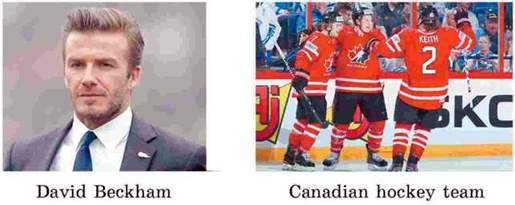
Example: I think Queen Elizabeth II is the head of the United Kingdom of Great Britain and Northern Ireland.
II. Pronunciation Warm-up
Read the poems (p. 189) and practise the rhythm. Say what unites these great people.
POEM
Let’s remember Columbus
In fourteen hundred and ninety-two
Columbus sailed the ocean blue…
Let’s sing together this old song
About the voyage that took him long;
About the sailors, those strong brave men.
Let’s sing and remember them all again!
CAPTAIN COURAGEOUS
Nelson Brooke knows much about Cook.
What does he know?
Look for yourself.
Captain Courageous, brave sailor at that.
He discovered New Zealand and in nine months Australia.
The greatest explorer, in fact.
III. Grammar Smart
1. Look and recall.
1) Use the when you want to speak about
– Seas, oceans and rivers
Example: The Mississippi river is the longest river in the USA.
2)
A) Play a grammar completion game.
1. The biggest river in Ukraine is the Dnieper.
2. The capital of Britain is… .
3. The capital of the USA is… .
4. The longest river in the USA is… .
5. Ukraine is washed by… .
6. The Crimea is in… .
B) Label the pictures. Use the where necessary.
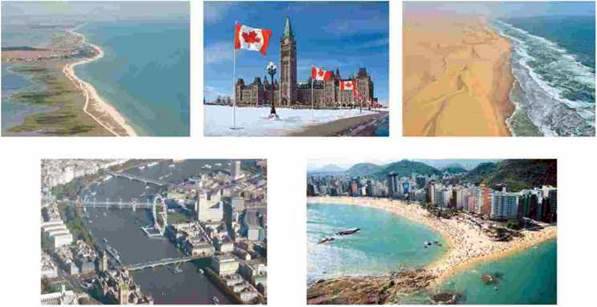
Thames, Ottawa, Wellington, Atlantic ocean, Sea of Azov.
1) Use the when you want to speak about:
– the parts of the world – the South, the North, the West, the East
Example: Ukraine is in the West.
– the names of the ships
Example: James Cook had his sea voyage on board the Endeavour.
2) Do not use a/an, the when you want to speak about:
– continents
Example: Columbus swam to Asia.
– proper names
Example: James Cook is a great explorer.
– the names of the countries
Example: Canada is the north of America.
– names of the seasons
Example: Spring is a wonderful season.
A) Play a funny questions game. Use the words from the box below.
Example: A: Does the crocodile live in the North?
B: No, he doesn’t. He lives in the South.
White bear | Koala bear | Indians | Kangaroo |
Aborigines | Canadians | Crocodile | Inuits |
B) Say where your town is:
– part of the world
– continent
– country
– river/sea
IV. Word Smart
A) Match the verbs to the nouns and make up sentences with them.

Example: Ch. Columbus crossed the sea three times.
B) Read words and word combinations from the box (p. 191) and say:
1. who takes part in discoveries;
2. what explorers do on a sea voyage.
To find the way to | Captain |
To sail (sailor) | Explorer |
To conduct an expedition | A sea voyage |
To claim something for somebody | Seamen |
To draw maps | Crew |
To explore unknown lands |
Example: I believe courageous seamen take part in discoveries. They conduct sea expeditions.
C) Look at the pictures and select information about each great explorer from the sentences below.
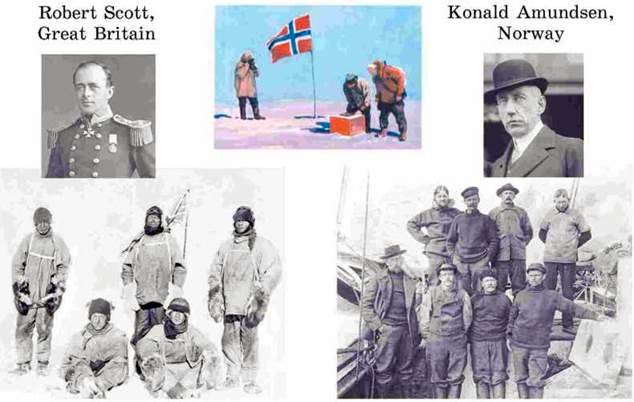

– He is a national hero of Britain.
– He is a great Arctic explorer from Norway.
– He made a risky journey to Antarctica.
– He took sleds and dog teams.
– He took ponies and a few dogs only.
– He kept a diary in which he described his hard journey.
– He wanted to be the first person at the South Pole.
– He put up a tent and a flag near it and claimed it for Norway.
– He lost the race against another great explorer.
– He died of extreme cold and hunger on the way in the ship.
– People admire his bravery and will power.
– He beat another great explorer in the race to the South Pole.
– His countrymen can’t help admiring his wisdom and courage.
At home: Find the information about an explorer who discovered any country.
Go to Ex. 105, 106 of your Workbook
V. Time to Listen and Read
1. Listen to / read what children from different English-speaking countries say about the discoveries of their countries and say how the countrymen honour them.
Today is October 12, an American public holiday. On this day we honour Christopher Columbus, the Italian sailor and explorer who was the first European to discover America in 1492.
It’ll be interesting for you to know that this great man didn’t know that he discovered America. He was trying to find a new way to Asia, so he sailed to the west from Spain. Even when he crossed the Atlantic, he thought it was the coast of Asia. He continued to believe that for the rest of his life Columbus made three more journeys to America. But some scientists believe that the first discovery of our country by Europeans was about 500 years earlier. So many scientists, so many points of view!
Do you know that one great man discovered two countries – New Zealand and Australia? It is the pride of the British nation – James Cook. He discovered New Zealand and in nine months Australia. He made three journeys by sea to the Pacific ocean and became the first European to arrive at the east coast of Australia. His ship – the “Endeavour” first found New Zealand and then crossed the Tasman sea to reach the smallest continent in 1770.
The beauty of its nature and childlike natives – aborigines – made an unforgettable impression on him. He called that land “Botany Bay”.
It took his crew more than six months to do a very difficult job – to draw maps of the coasts of Australia and New Zealand. That peacefully changed the map of the world.
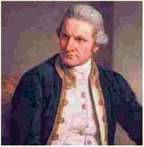
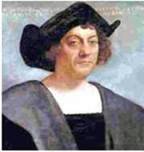
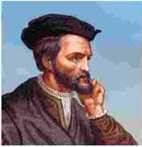
Jacques Cartier
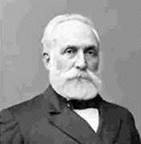
Arthur Mackenzie
Canadians admire their nation’s history. We know about original inhabitants of the country – Indians and Inuits, but I’d like to say a few words about European exploration. Far not everybody knows that the first European visitors to Canada were the Vikings from Iceland and Greenland. There is evidence that they settled in Canada around AD 1000 but nobody knows how long they stayed and what happened to them. The French explorer Jacques Cartier came to Canada in 1534 and claimed it for France. There were about 60 000 French settlers and it formed a good percentage of today’s French Canadians. But the British army also struggled for power in Canada and after many battles the balance was achieved. Sir Arthur Mackenzie founded British Columbia while Quebec and its territories remained French. As you see, the two languages – French and English – appeared historically.
Across Culture
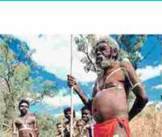
Aborigines – корінні мешканці Австралії.
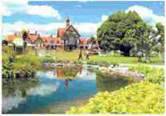
New Zealand – Нова Зеландія – країна, розташована на островах поблизу Австралії.

Anno Domini (AD) – до нашої ери (певна кількість років до народження Ісуса Христа).
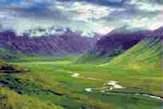
Iceland – Ісландія, острівна країна в Атлантичному океані, відома своїми вулканами і гейзерами.
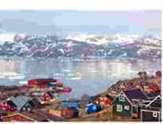
Greenland – великий острів в Атлантичному океані.
2. Fill in the right form of the word.
1. Ronald Amundsen is the pride of Norway.
2. Robert Scott died of cold and… .
3. Captain Cook is a… sailor.
4. I can’t help admiring the great men’s… .
5. Americans are very… of Columbus.
Proud
Hungry
Bravery
Wise
Pride
3. Look at the pictures and reproduce the episodes where their explorations are described.

VI. Time to Communicate
1. Act as one of your international friends and speak about the discovery of your country. Use:

Jeremy (Canada) Phil (USA) Sarah (Britain)
– to make a journey;
– to conduct an expedition;
– to make a map;
– to claim something for somebody;
– to explore unknown lands;
– to be the national pride of the country.
2. In pairs, discuss the discovery of English-speaking countries. Use the pattern.
Pattern:
A: I say… , what holiday do Americans celebrate on… ?
B: As far as I know, it is… you know. Columbus….
A: That’s true, but there is evidence that… .
B: Exactly. Every country is proud of its… . Take Captain Cook who… and… .
A: Far not everybody knows, that… .
B: But unfortunately… .
A: You are right. But his countrymen… and… .
B: All… are national heroes.
3. Imagine you are a historian. Speak about the discovery of any English speaking country.
VIII. Time to Write
Write a list of questions for more information you’d like to ask your international friends about the history of their countries.
Go to Ex. 107, 108 of your Workbook